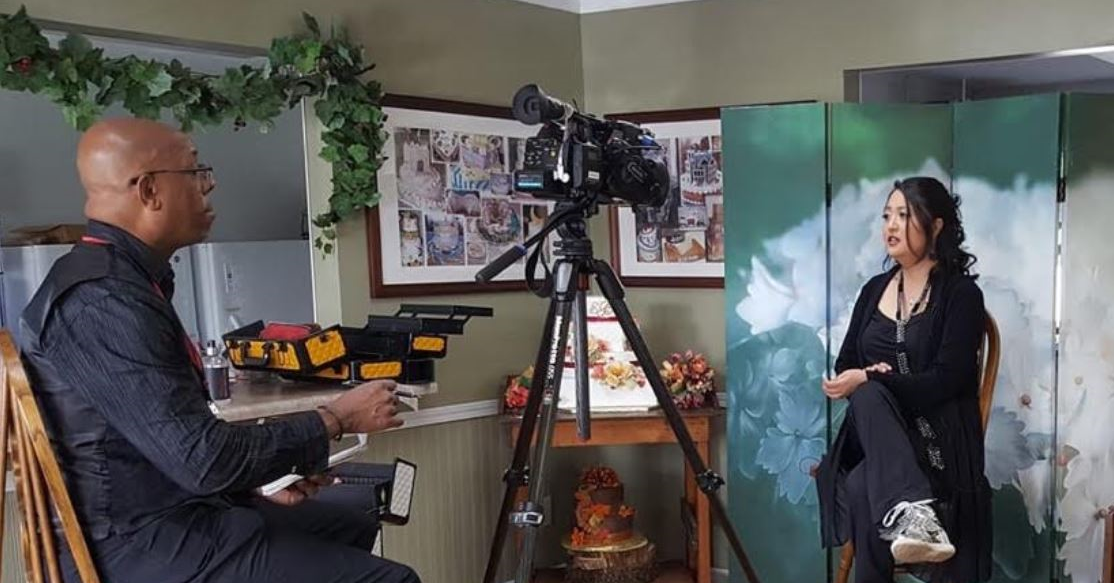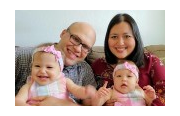Why "My Brain Makes Me Proud"
- Written by Theresa San Luis Teller

How can a person with mental illness be proud?
As I am co-authoring a memoir with Art Holliday—“My Brain Makes Me Proud: How I Beat Schizoaffective Disorder,” I hope to share the various coping skills I’ve discovered for my mental illness. Faith, for one, allows me to have hope when I don’t see the light at the end of a tunnel. I feel God’s purpose even through the thick of things. Applying improvisation comedy in my daily life catapults joy amongst me and others during creative funny moments. My love for music is deeply rooted within me, and stirs me emotionally to be fervent and passionate on a daily basis.
I strive to be a stigma-fighting role model for individuals with mental illness. I try to live my best life for the sake of not only myself, but also for others who may gather hope and draw strength from my story. Where stigma prevents people from getting help, I hope to destimgatize mental illness by sharing the daily techniques that allow me to live a successful life.
I know that every day will always be another day to improve my situation with mental illness and to be closer to recovery. I’ve gone so far as to call the suicide hotlines to seek help with my depression. I can never give up, and I’d like to say misery should never be permanent as long as I keep on trying to build a fulfilling life for myself, and have faith that God is with me and I’m never alone.
Six weeks of classes on improvisation really allowed me to use my creative capacities and generate jokes on a daily basis. When the joys of laughter outweigh the everyday struggles, then I have not allowed my depression or condition to defeat me. I still take medication, but I find it so true that laughter is the best medicine. Also, when I am sane without anxiety attacks, for instance, I am so grateful that I wouldn’t take for granted a moment to usher in joy in someone else’s life through joking.
 Music is potent. I have been trained on piano and viola, and earned degrees in music performance at the Interlochen Arts Academy boarding school and at the University of Notre Dame. Often, when I didn’t know how to express or communicate my thoughts and emotions as a teenager, playing musical instruments served as an outlet. I felt joy, expressed anger by playing vigorously, and learned to be tender-hearted playing beautiful music. All these feelings while performing came directly from the heart. It enriched my life to have that - talent and love for music; and people who have heard me perform said they felt it.
Music is potent. I have been trained on piano and viola, and earned degrees in music performance at the Interlochen Arts Academy boarding school and at the University of Notre Dame. Often, when I didn’t know how to express or communicate my thoughts and emotions as a teenager, playing musical instruments served as an outlet. I felt joy, expressed anger by playing vigorously, and learned to be tender-hearted playing beautiful music. All these feelings while performing came directly from the heart. It enriched my life to have that - talent and love for music; and people who have heard me perform said they felt it.
I’ve worked roughly 15 years in nursing homes in activities for people with dementia or Alzheimer’s disease. I talk to my residents about my faith in God, and how they can silently pray for others even if they cannot verbalize it. God is not over with them.
My humor enhances my ability to redirect residents from their confusion, misery and anguish. Where memory care units make for never a dull moment, I create even more unforgettable moments through light-hearted jokes. I’ve found residents to be truly young at heart.
Finally, I’ve seen how music comforts and carries residents through moments in time. Through music, I’ve learned to validate residents’ feelings, allowing them to experience their full range of emotions which I feel contributes to mental health. Music can cause the residents to perk up to the happy beats, tap their toes and dance; reminisce while listening to a love song, transporting them to fond memories of romance; meditate and grieve during serious moments of reflection such as on Memorial Day.
Today, I incorporate music with my mental health recovery story to help people through a presentation titled, “Tuning Out Stigma.” I play my original piano music as interludes between sharing five phases of my story: my Dark Days; Acceptance; Treatment; Coping Skills; and Successes, Hopes, and Dreams. This sequence was modeled after the National Alliance on Mental Illness (NAMI) In Our Own Voice presentation format, where I had been a volunteer public speaker for that program since 2009.
My message is that being diagnosed with a mental illness is not a death sentence. Recovery is a real possibility. Along with the listed coping skills, I am being treated with medication and see a counselor to manage my condition. I’ve had four hospitalizations since being diagnosed in 1999 while a sophomore in college. I’ve learned in the most recent hospitalizations that getting help should be a normal protocol and not a last resort. My coping strategies have carried me along through the rough patches and wonderfully when I am asymptomatic. My brain makes me proud.
About the Author
 Theresa San Luis “Story” Teller is a pastor’s wife to husband Nick Teller in California. At age 40, she became the proud mother of healthy, beautiful twins: Lora Maria and Mary Elizabeth. She earned her B.A. in English and music from the University of Notre Dame, an M.A. in communication at the University of Illinois Springfield, and an M.A. in public administration at Southern Illinois University Edwardsville (SIUE). Theresa can be reached by email at This email address is being protected from spambots. You need JavaScript enabled to view it..
Theresa San Luis “Story” Teller is a pastor’s wife to husband Nick Teller in California. At age 40, she became the proud mother of healthy, beautiful twins: Lora Maria and Mary Elizabeth. She earned her B.A. in English and music from the University of Notre Dame, an M.A. in communication at the University of Illinois Springfield, and an M.A. in public administration at Southern Illinois University Edwardsville (SIUE). Theresa can be reached by email at This email address is being protected from spambots. You need JavaScript enabled to view it..






















